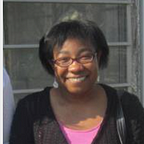Five Minute Friday — Pressure and Strength: Shiphrah and Puah
Every Friday I join a community of bloggers for Five Minute Friday. One word prompt, five minutes. And I literally write it in 5 minutes. The prompt this week is … pressure.
**This took longer than 5 minutes to write, but it was the only thing I could think of when mentioning pressure.**
In the first chapter of Exodus the story begins in Egypt. Pharaoh is paranoid with the population growth of the Israelites. He came up with the plan to stop the population of Israelites so he ordered the boys that were born had to be put in the river to die. The babies that were girls were allowed to live. The Egyptian Pharaoh knows that the Jewish nation was becoming too numerous, and if not checked, could become a severe threat to his dynasty simply by their sheer strength in numbers. He turned to the midwives and placed pressure on them to kill the babies. While this law was expected to succeed, God had other plans. This road out for the Israelites begins with two midwives, Shiphrah and Puah who provided such grace despite the pressure of Pharaoh.
Midwives assisted women in childbearing, cut the infant’s umbilical cord, washed the baby, and presented the child to the mother and father. Midwives are called to be a calming force to the parents, especially the mother because most likely the father was outside waiting for the baby to be born. In Exodus 1:15–22 we meet Shiphrah and Puah, leaders among the midwives in Egypt. As leaders in their community of midwives, Shiphrah and Puah shined because they were prominent women of faith and shown to be respected in the community.
Although servants in their community, in Exodus they were pressured by the King of Egypt, or Pharaoh to kill all Hebrew babies. These women refused to do so because “that the midwives feared God, and did not as the King of Egypt commanded them” (Exodus 1:17). In the text of the Hebrew Bible literally reads “the midwives feared the God” (Hebrew, ha ‘elohim), that is, the God of the Hebrews, the one true God. They make the distinction of course in the Hebrew bible because in Egypt there were many gods.
They knew the cost of dying a slow death if they honored Pharaoh’s death orders. They knew that it would cost them their relationship with their God. And with this knowledge of how God operated they delivered ALL the babies — male and female. When coming up with a story, they became clever with their approach to the situation, exhibiting such grace under pressure.
When challenged by the Pharaoh as to why there are just as many Hebrew boys as Hebrew girls, they explained that Hebrew women’s labor was short-lived because they were ‘lively’ or ‘vigorous’, and therefore the babies had been born (and protected) before the midwives arrived. The reality was that they delivered the babies and hid the babies to protect them, even against the orders of the king.
The one thing that surprises me is that Pharaoh does not touch Shiphrah and Puah. Shiphrah and Puah had favor with God, thus favor with Pharaoh. Pharaoh continued to take their word, but eventually changed policy anyway. Regardless, Shiphrah and Puah continued to deliver the Hebrew babies and verse twenty tells us because of their obedience, “God dealt well with the midwives: and the people multiplied, and waxed very mighty.” God made them houses or dynasties. Just as God blesses us when we fear him, he blessed them because they feared him (Exodus 1:21).
I love the story of these two women. I love their insight into their job as midwives and their strength under pressure when dealing with Pharaoh and his unjust laws. It is such an encouragement to me when I too am dealing with injustice. Fear God and he will give you strength under pressure.
